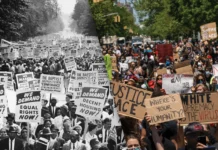In the annals of American history, the struggle for women’s suffrage is a well-documented and celebrated story. However, there is a remarkable and often overlooked footnote in this narrative – the election of Jeannette Rankin to the United States Congress in 1916, four years before the 19th Amendment granted women the right to vote. Her election was not only a pioneering moment for gender equality but a testament to the resilience and determination of women in their fight for political representation. This article delves into the remarkable life and groundbreaking political career of Jeannette Rankin.
Early Life and Education
Jeannette Rankin was born on June 11, 1880, in Missoula, Montana. She grew up in a large, politically active family. Her father was a well-known rancher and a member of Montana’s State Legislature, while her mother was a suffragist who actively campaigned for women’s right to vote. Jeannette Rankin’s family background played a significant role in shaping her political consciousness.
Education was highly valued in the Rankin household, and Jeannette was encouraged to pursue a higher education. She attended the University of Montana and later studied at the New York School of Philanthropy, which would provide her with valuable insights into social issues, a crucial aspect of her future political career.
Early Career and Suffrage Activism
Jeannette Rankin’s journey into politics began through her involvement in social work and suffrage activism. She worked as a social worker in San Francisco, where she witnessed firsthand the struggles of women and children living in poverty. Her experiences fueled her commitment to advocating for social and political change. This commitment led her to join the women’s suffrage movement, an endeavor that was to become a central element of her life.
Election to Congress
In 1916, the state of Montana made history by electing Jeannette Rankin to the United States House of Representatives. She was the first woman to hold federal office in the United States, and her election predated the ratification of the 19th Amendment by four years. Rankin’s campaign focused on issues such as social welfare, labor reform, and suffrage, and her victory was a testament to the changing attitudes towards women in politics.
Her Historic Vote Against World War I
Jeannette Rankin’s groundbreaking election to Congress was not her only historic moment in the political arena. In 1917, she made another indelible mark on history by casting her vote against the United States’ entry into World War I. Her stance was deeply unpopular at the time, and she faced severe criticism for it. However, Rankin’s vote against the war was consistent with her unwavering commitment to non-violence and her belief in using diplomacy to resolve conflicts. Despite the backlash, her principled stand resonated with many and cemented her legacy as a pacifist and a woman of strong conviction.
Legacy and Lasting Impact
Jeannette Rankin’s political career was marked by her unyielding dedication to the causes she believed in. Her election to Congress before women could vote is a testament to her perseverance and the shifting attitudes towards women’s political participation. She went on to serve a second term in Congress in 1941, where she cast her historic vote against the United States’ entry into World War II, becoming the only member of Congress to oppose both World Wars.
Rankin’s legacy continues to inspire women in politics and serves as a reminder of the progress that has been made in the fight for gender equality in the United States. Her pioneering spirit and commitment to social and political change opened doors for future generations of women in politics, reminding us that even in the face of adversity, one person’s determination can reshape history.
Jeannette Rankin’s election to Congress before women gained the right to vote is a remarkable and often overlooked chapter in the history of women’s suffrage and political representation. Her life and career stand as a testament to the power of persistence and the capacity of individuals to effect meaningful change. Jeannette Rankin was a trailblazer who blazed a path for women in politics, and her legacy continues to inspire and remind us of the importance of women’s voices in the political landscape.
Photo by Element5 Digital on Unsplash
Views: 39






